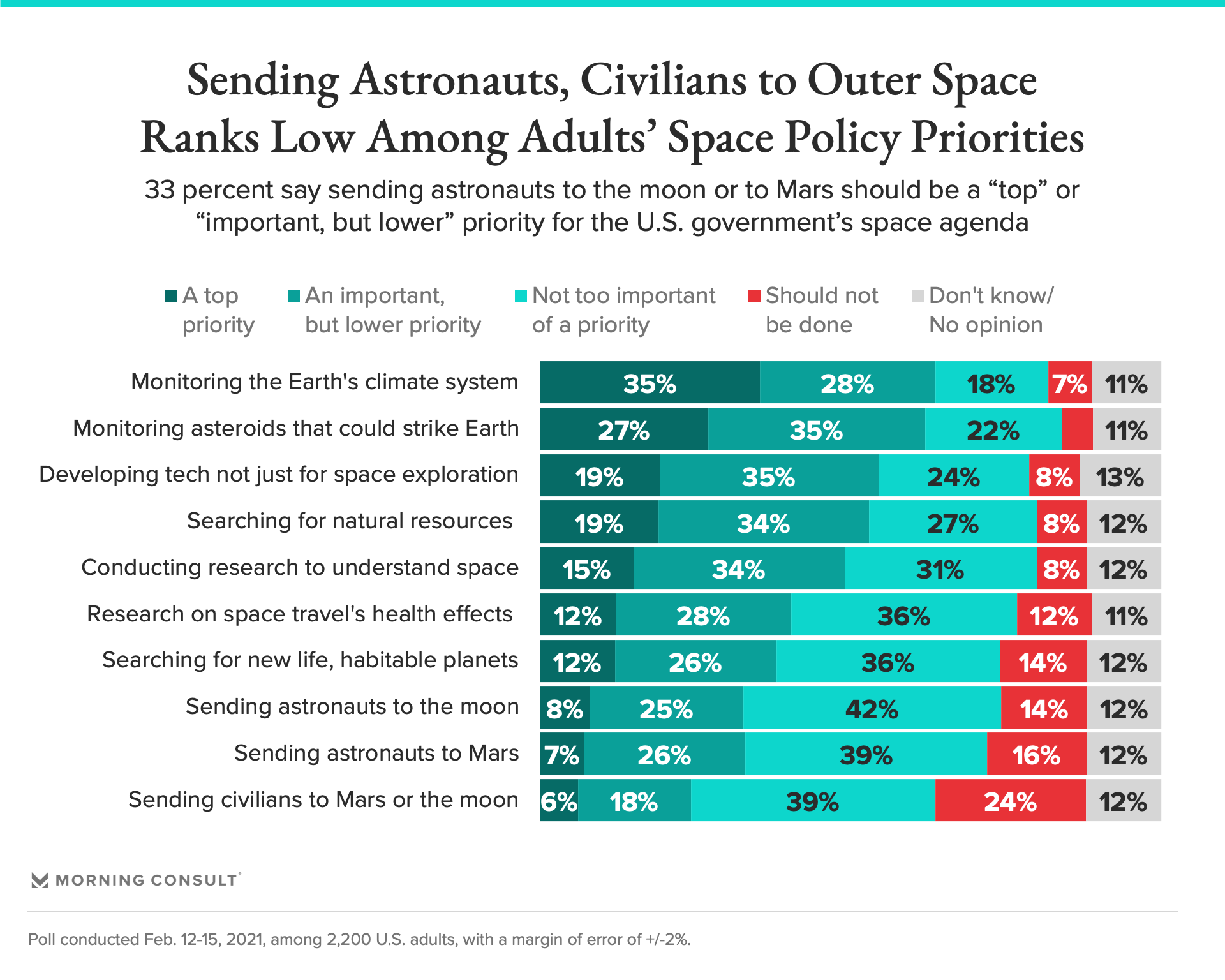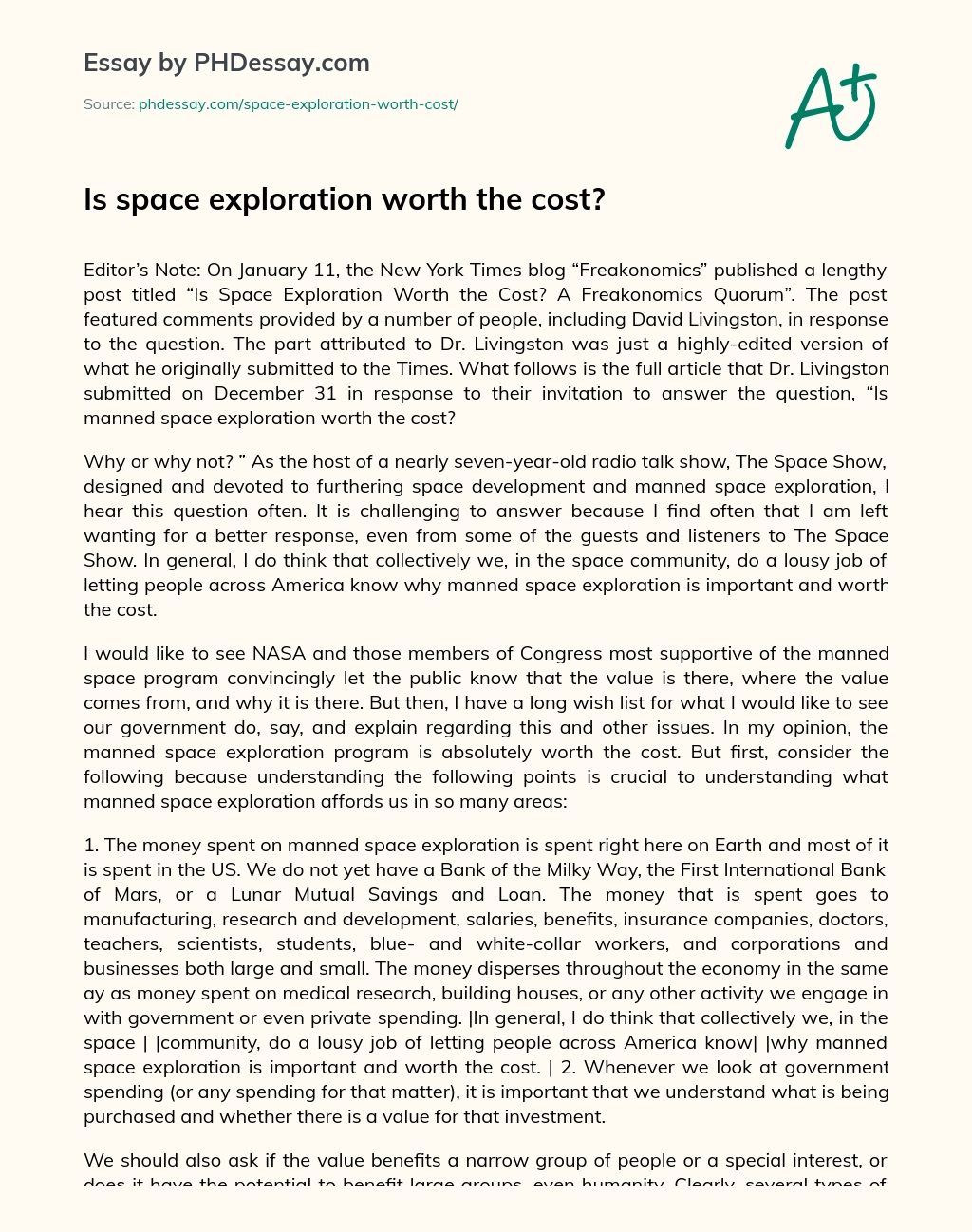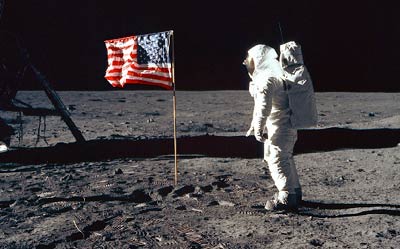Space exploration is a topic that has long captured the imagination and curiosity of people around the world. It represents the pinnacle of human achievement, pushing the boundaries of what is possible and inspiring future generations to reach for the stars. But with such great potential comes a great cost, both financial and otherwise. Is space exploration worth the cost? This is a question that has been debated for decades, and the answer is not a simple one.
On one hand, the benefits of space exploration are numerous and far-reaching. For starters, it has the potential to yield scientific discoveries that could improve our understanding of the universe and our place in it. This includes learning more about the history and evolution of the solar system, searching for signs of life on other planets, and studying the effects of zero gravity on the human body. In addition, space exploration has a number of practical applications that can benefit society as a whole. For example, satellite technology allows us to communicate across vast distances, monitor the Earth's weather and climate, and even predict natural disasters.
But it's not just about the scientific and practical benefits of space exploration. It also has the power to inspire and motivate people, particularly young people, to pursue careers in science, technology, engineering, and mathematics (STEM). This is especially important in today's world, where there is a growing demand for workers with these skills. By investing in space exploration, we can foster a sense of curiosity and innovation that can help drive the next generation of technological advances.
On the other hand, the costs of space exploration are significant. The development and launch of a single space mission can cost billions of dollars, and this is before considering the ongoing expenses of operating and maintaining spacecraft and other related infrastructure. This is a significant investment, especially when one considers that there are many other pressing needs on Earth that also require funding. For example, there are countless social and environmental problems that need to be addressed, and some argue that money spent on space exploration could be better used to address these issues.
Another concern is the risk of space exploration. While advances in technology have made space travel much safer in recent decades, there is still a significant element of risk involved. In the past, there have been several tragic accidents and fatalities during space missions, and there is always the potential for something to go wrong. This risk is not just limited to the astronauts themselves, but also to the people and resources involved in the mission, as well as the potential impact on the environment.
Ultimately, the question of whether space exploration is worth the cost is a complex one that depends on a variety of factors. While there are certainly benefits to be gained from exploring the final frontier, there are also significant costs and risks involved. It is up to society to weigh the pros and cons and decide whether the potential rewards of space exploration justify the investment.









